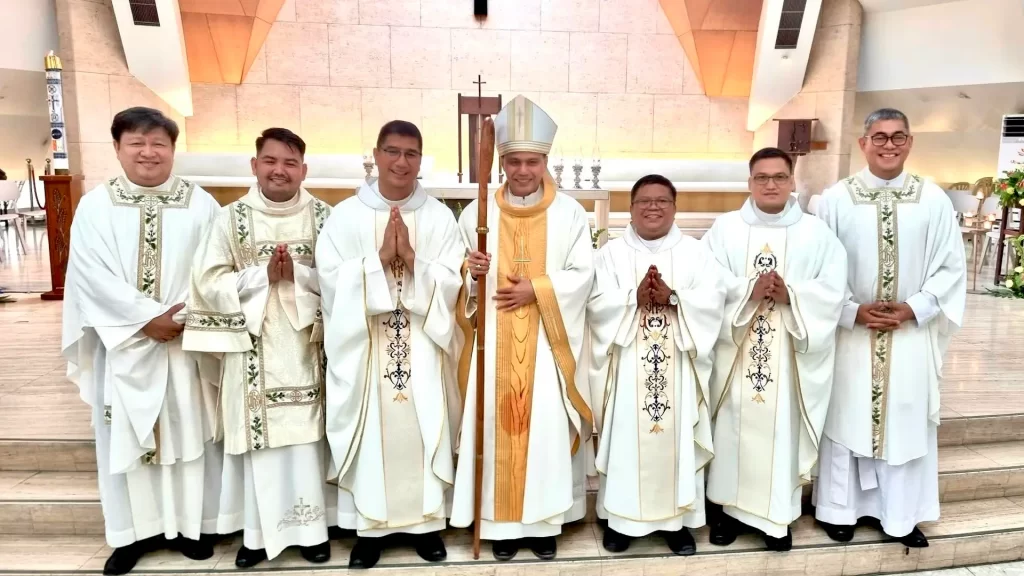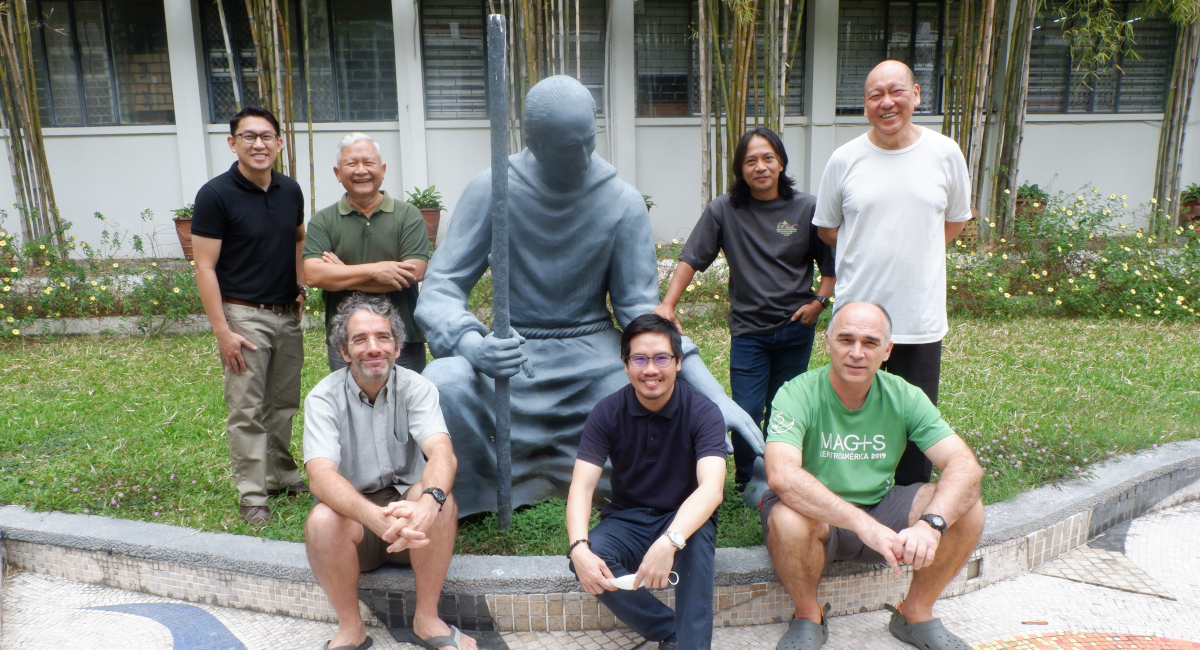 The Jesuit Conference of Asia Pacific runs a Tertianship programme based in Manila from September to March of the following year. Tertianship is the final period of formal religious formation for Jesuit priests and brothers before they profess their Final Vows. It represents a third time of “testing” since a Jesuit’s application to the Society of Jesus and his two-year novitiate experience.
The Jesuit Conference of Asia Pacific runs a Tertianship programme based in Manila from September to March of the following year. Tertianship is the final period of formal religious formation for Jesuit priests and brothers before they profess their Final Vows. It represents a third time of “testing” since a Jesuit’s application to the Society of Jesus and his two-year novitiate experience.
We asked our Tertians their most significant experience in this stage of formation St Ignatius describes as “the school of the heart”.
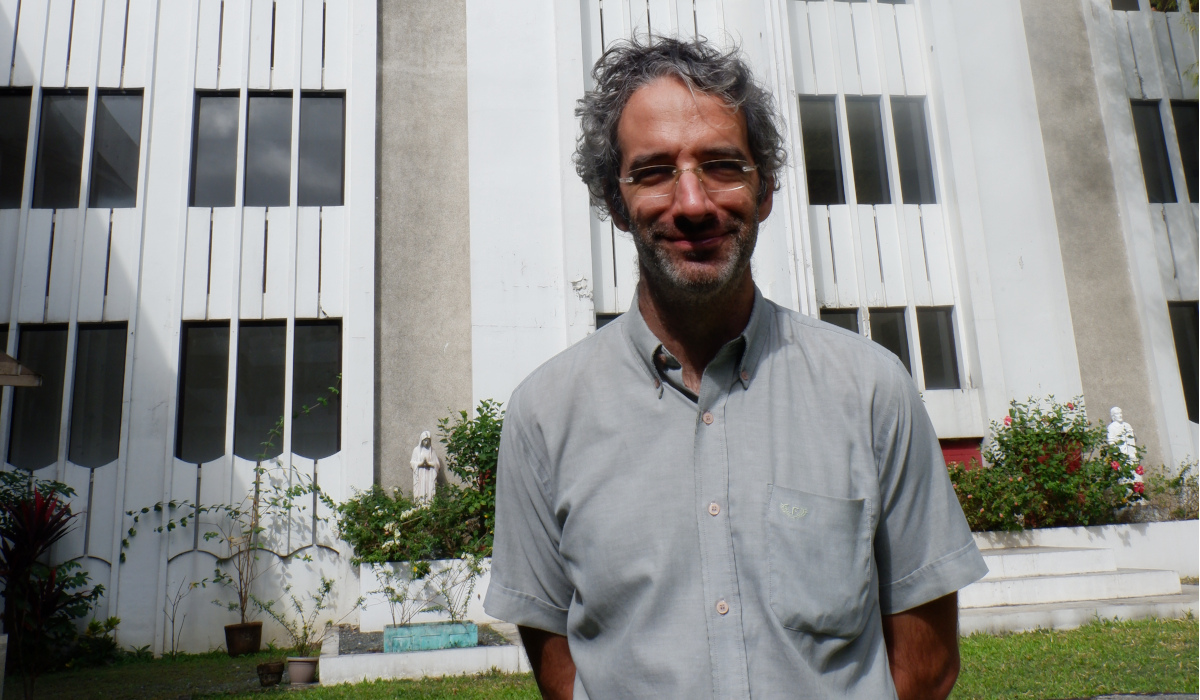
Since I had spent all of my formation in my province, I thought it might be good to live the “school of the heart” abroad to discover another side of our least Society. As a journalist in the last four years, I am also quite aware that the world’s “centre of gravity” has shifted towards Southeast Asia. So when a close friend from Indonesia, who is writing his thesis in Paris, told me about JCAP’s Tertianship, I became fascinated with the opportunity to participate in the programme and complete my formation in the “Far East” from a European perspective!
Our exposure to an impoverished neighbourhood in Kalookan, located in Manila, has been one of the most impactful experiences of my life. I cannot forget the living conditions of the residents. Witnessing how these individuals cope with the “sinful structures” present in our society is a powerful call I heard from our Lord.
I am also deeply grateful for the support I received from my instructors and fellow Tertians. It still amazes me how a shared sense of belonging to the body of the Society, without denying our different backgrounds and cultures, can help each one to joyfully share and carry on our mission of imitating our Lord and proclaiming His Gospel.
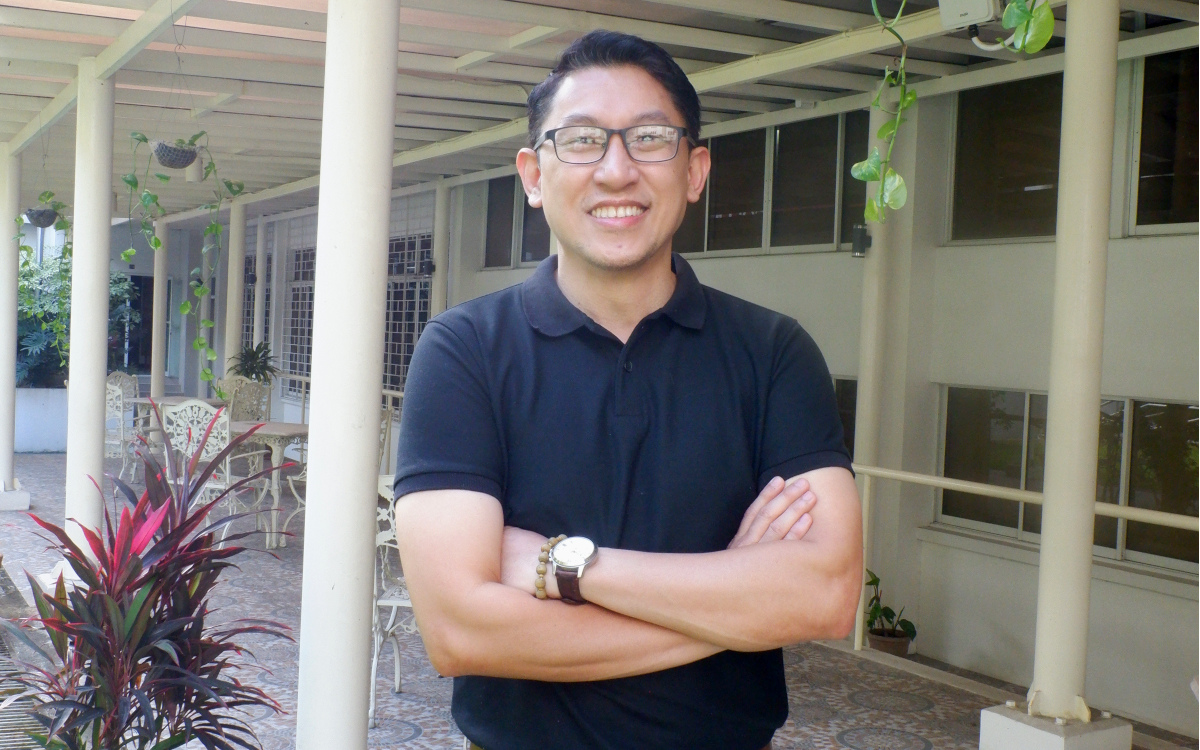
Most people call and know me by my nickname: Ernald. I joined the Jesuits in 2003 after working as an operations officer in a bank. After 11 years of basic formation, I was ordained to the priesthood in 2014 and served as an assistant parish priest and school director at Zamboanguita, Malaybalay, Bukidnon. My experiences there drove me to pursue my doctoral studies at Loyola Marymount University, where I focused on Educational Leadership for Social Justice. At the height of the pandemic, I returned to the Philippines to serve at Ateneo de Davao University.
A week before the start of the Tertianship programme, I learned that I had been elected as the next president of Ateneo de Zamboanga University. I was feeling very anxious about this decision, but through the course of the programme, particularly during the long retreat, I felt how the Lord has been gently guiding me into a deeper appreciation of how I can place my trust in Him, who has not just called me to this vocation but has always sustained me and those whom I minister to in the Church through our least Society. I am coming out of the programme with a greater sense of inner freedom and passion to respond to God’s invitation to participate even more faithfully in the works of His Son, in His Son’s company.
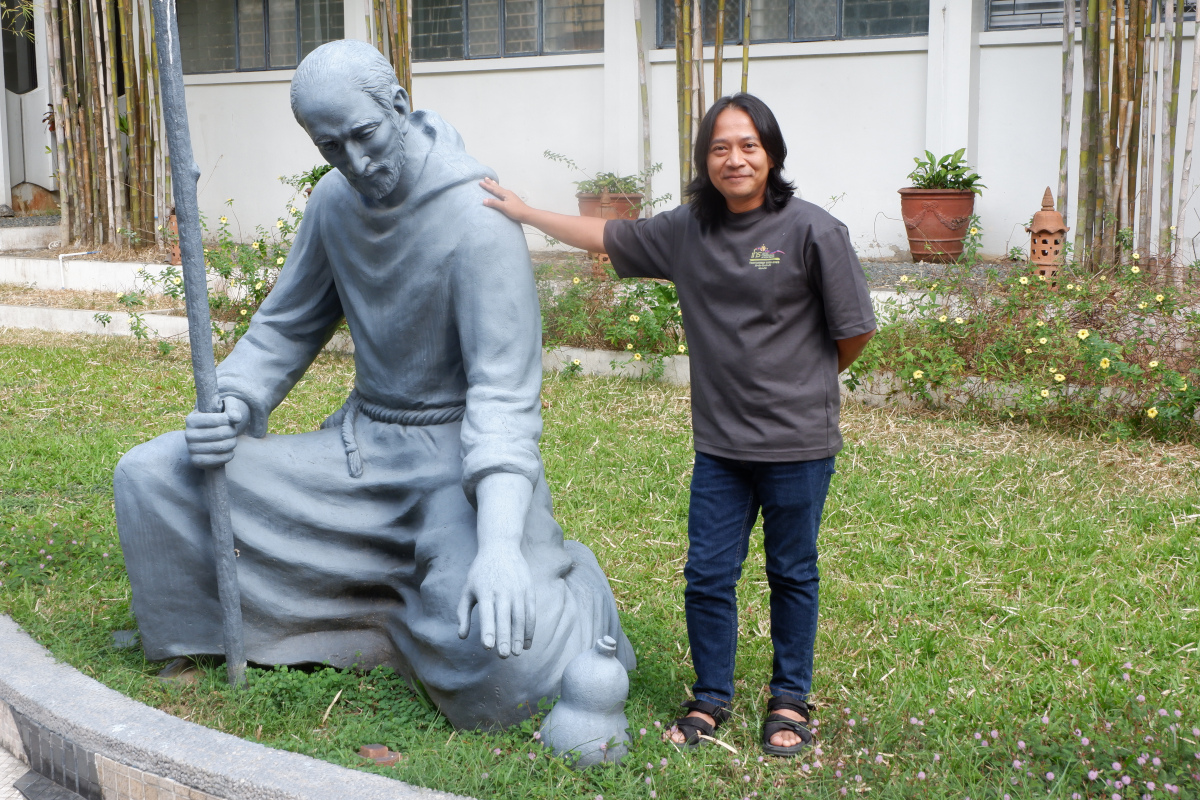
The most beautiful and consoling grace I received during my six months’ experience is communication with love. I call it the “language of the heart”. I celebrated the Eucharist in three local languages. The common language here is English and many people use it. But in daily conversations, people use different local languages. During my Filipino Life Experience in Kalookan, Manila, I presided Masses and anointed sick people in Tagalog. In my Christmas ministry in Ifugao, North Luzon, I celebrated the aguinaldo Mass (dawn Mass) in Ilocano. And in my elective experience in Bukidnon, Mindanao, I presided a Mass in Bisaya. I did not understand all the words, but I always felt the Holy Spirit accompany me in speaking the language of the heart. I believe that the Spirit speaks in the language of the heart, which enables people of all backgrounds to experience and comprehend who the God of Love is.
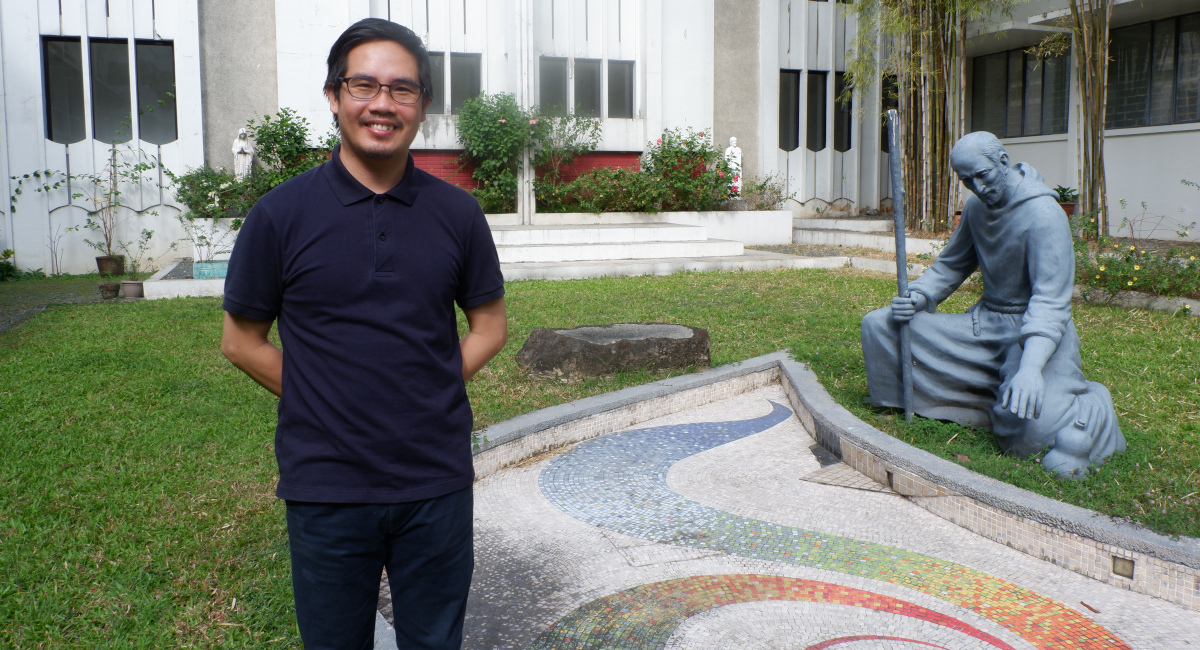
I joined the Society of Jesus in 2004, was sent to Japan in 2009 for Regency, and was ordained a priest by Archbishop Peter Okada in Tokyo in 2017. I continued my studies at Sophia University, but was called to help in the parishes in Yamaguchi during the pandemic. I was working there until I joined the JCAP Tertianship programme in the Philippines. I am extremely grateful to have done my Tertianship with two experienced directors and four friendly companions from Croatia, France, Indonesia, and the Philippines.
At the heart of the Tertainship programme is the 30-day retreat, which is preceded by several weeks of preparation to maximise the grace of the Spiritual Exercises and Ignatian Spirituality. During this time, we shared our graced stories of vocation and immersed with Filipino families. It renewed and strengthened my desire to encounter our Loving God in the “desert”. The long retreat gave me an abundance of graces to deepen my relationship with the Lord, my Creator, my Way, my Truth, and my Life. It allowed me to reaffirm my vocation as a Jesuit, to follow Jesus more closely, and to strive to emulate Him in poverty, chastity, and obedience.
The experiments following this retreat enriched my love for the people of God. For my electives, I chose to visit prisoners in the New Bilibid Prison and the elderly in a home in Tayuman. I was surprised to hear them say they never felt that God had forgotten or abandoned them. With faith and hope, they see their lives as still blessed by God even in very difficult circumstances.
I want to thank the Society of Jesus for this incredible opportunity. My Tertianship has taught me me to take more responsibility for my Jesuit life. In many ways, this programme has been a transformative experience that has left me feeling like I have been transfigured on top of the mountain.
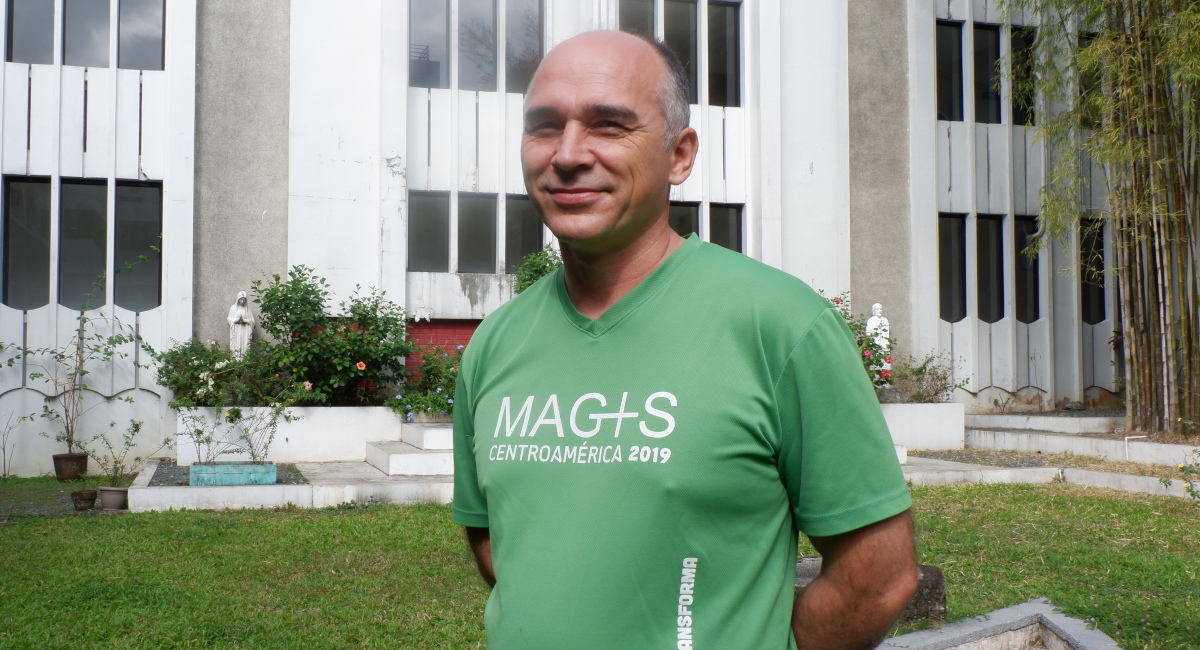
Fr Tomislav Spiranec (Croatia)
From my point of view, the Tertianship programme was well-balanced. The time spent on campus and the off-campus experiments suited me well. We had the opportunity to be exposed to the life of the Jesuit formation house at Ateneo de Manila, the urban poor in Caloocan, a long retreat at the Jesuit novitiate house in Novaliches, the rural poor in the Cordilleras during Christmas (I was in Barlig at 1889 metres altitude), and in Mindanao (Bukidnon mission, Xavier University in Cagayan de Oro, and Davao).
I felt that the programme and our small community helped me become whole again. A better word to describe the process would be healing. I am grateful to God and my companions, Pri, Ramon, Ernald, Dingh, Koko, and Roman.




